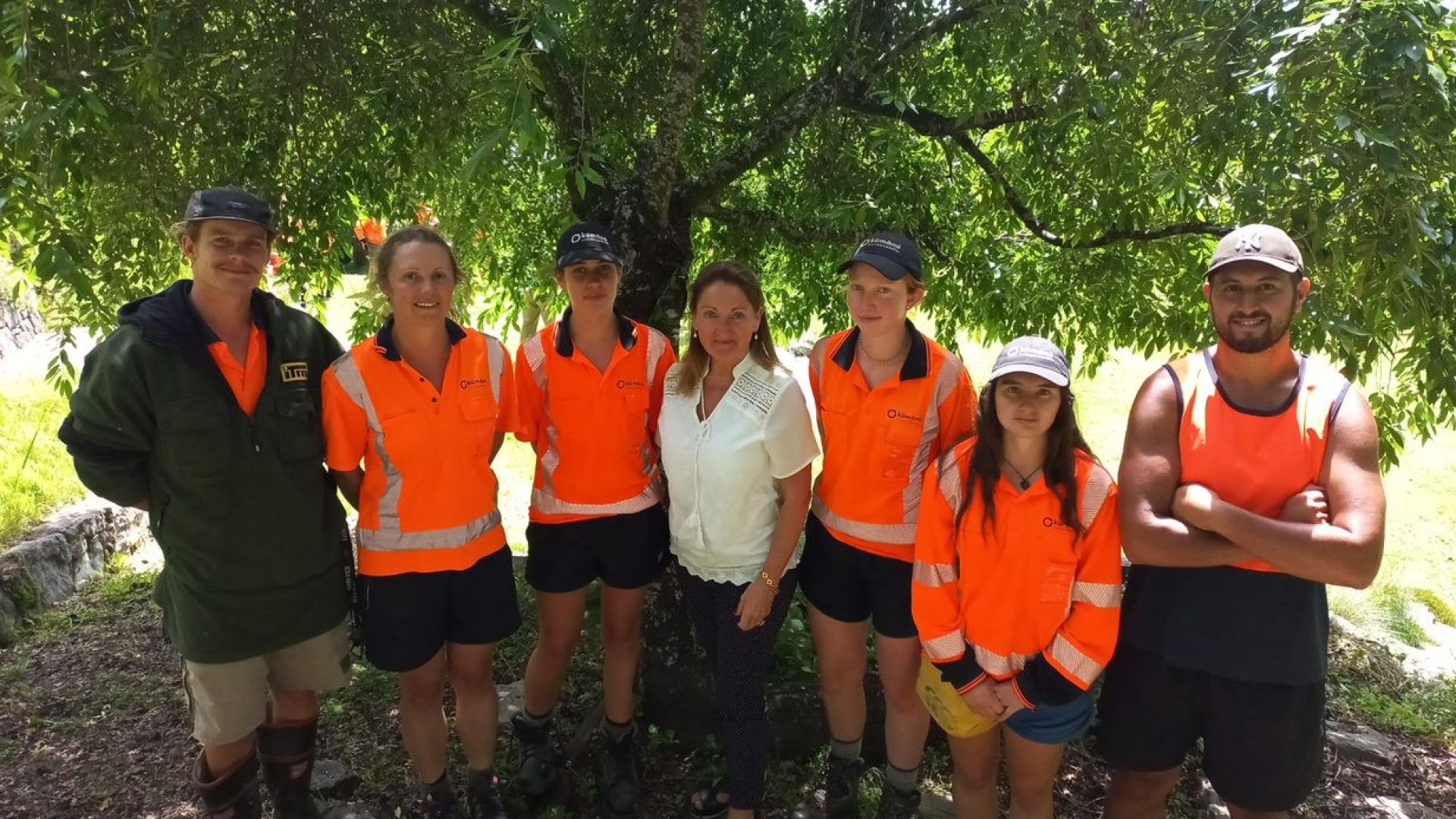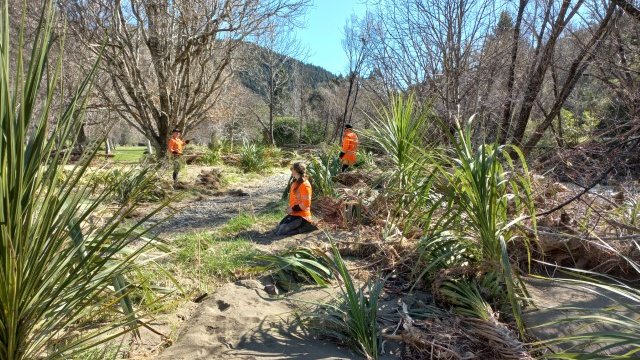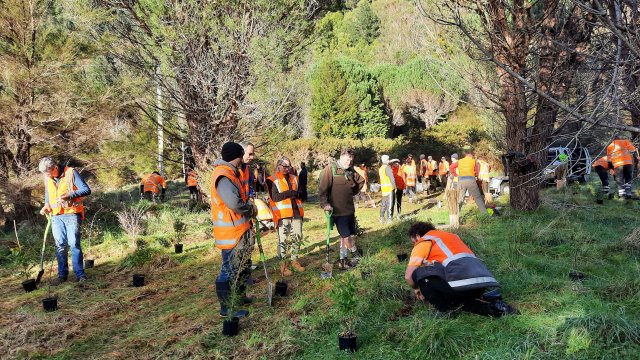Conservation workforce growing through ranger programme
31/01/2023 11:47am
The most recent group of field rangers employed through Jobs for Nature projects in Te Tauihu have graduated with the Kūmānu Conservation Ranger Certificate after successfully completing the 18-month training course.
The groundbreaking training initiative enabled by Nelson City Council’s Project Mahitahi and designed by Kūmānu Environmental has seen 12 rangers complete their qualifications so far, gaining a variety of practical skills.
“The training is enhanced by the practical mahi that happens alongside the theory, and trainees are able to apply their new skills right away to condense their learning,” says Project Mahitahi Manager Susan Moore-Lavo.
Focused on hands-on environmental work, the training included modules on weed management and plant identification run by Nelson Marlborough Institute of Technology (NMIT), and pest plant and animal control training by the Primary Industries Training Organisation (PITO). Trainees undertook the study of Te Ao Māori and Tikanga Māori as a vital part of their learning.
The course replicates training that until now has only been available through full-time study. Participants are employed on permanent contracts by Kūmānu Environmental (a division of Nelmac) whilst training, and the majority continue to stay with Kūmānu in a variety of roles once their certification is completed.
Some have secured work with the Department of Conservation (DOC) and the Auckland Zoo Native Species Programme.
“Beyond the fantastic conservation outcomes, the programme is growing our conservation workforce, as well as providing a pathway for employment opportunities,” says Moore-Lavo.
The Kūmānu Conservation Ranger programme, which started in Nelson, has now been extended to all Kūmānu Conservation Projects staff across Te Tauihu. In 2023, a further ten Rangers are enrolled to complete the Conservation Ranger Certificate.
Jobs for Nature funded projects in Nelson include Project Mahitahi, the Wakapuaka Whangamoa project, and Protecting Flora and Fauna on the Grampians which have combined central government funding in excess of $5.7 million.




